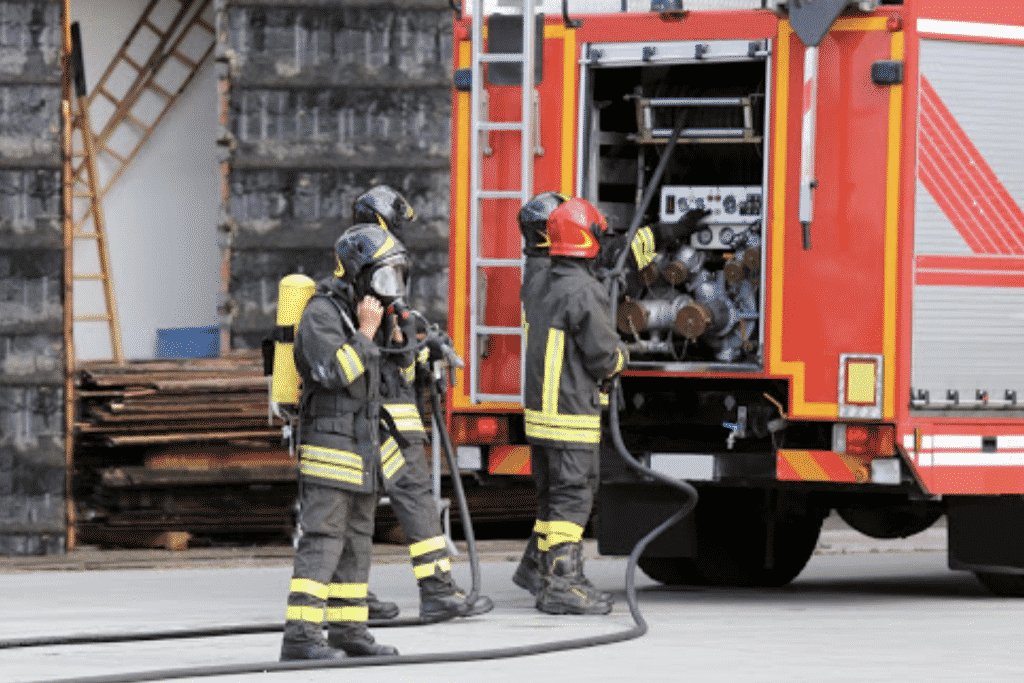A fire marshal, who is generally a member of the fire service, is in charge of fire training and safety. They are responsible for enforcing fire codes, determining the cause of fires, educating the public, and evaluating and reporting fire events, including conducting arson investigations. Fire marshals are sworn police officials who are in charge of enforcing the Fire Protection and Prevention Act.
Fire marshals have a variety of responsibilities, but the most common ones include enforcing fire codes and investigating fires to determine their origin and cause. Local fire departments are occasionally handed some of the firefighting responsibilities in bigger cities with well-developed fire marshals.
Can A Fire Marshal Fine A Person Or Fire Watch Guard?
A fire watch guards can be fined and shut down by the Fire Marshal.
If a fire watch guards violates the minimal safety criteria, the fire marshal can levy a fine. These criteria, as well as the sanctions, may differ from state to state, but if they fail to meet the minimal safety criteria, they may be penalized.
They can also find you if the fire inspector believes that you haven’t fulfilled the safety requirements after evaluating the premises. They may issue you a notice that serves as a warning so that you may remedy the irregularities within a particular time limit. This time you will not be penalized. You will be penalized if you do not make the necessary modifications.
Not only does ensuring that you fulfill the minimal safety requirements safeguard your employees and property, but it also protects you from having to pay a fee. Hiring a fire watch guard will help you avoid fines and establish a safe working environment for everyone.
The responsibilities of a fire marshal differ depending on the locale. Fire marshals can carry a firearm, wear a badge, dress in a uniform or plain clothes, drive marked or unmarked automobiles, and make arrests for arson and associated offenses, or they can have tasks that are completely independent of law enforcement, such as building and fire code inspections. The fire marshal is in charge of enforcing rules involving combustible items in several places.
Roles and Responsibilities of a Fire Marshal
- Double-check your emergency exits. They should be free of blockage both inside and out at all times, and they should be able to be opened.
- Make sure your fire extinguisher is in good working order. Are they in the appropriate place, have they been serviced, and do they have signage indicating their location?
- Checking your fire doors at least once a week. Do they appear to be in excellent functioning order and are they opening properly?
- Double-checking your break glass call points these are the wall-mounted devices that may be used to manually trigger the fire alarm by smashing the glass. They should be visible and marked with signage at all times.
- Examining your emergency lighting on a monthly basis. All of the lights should be operational, and if they aren’t, an electrician or a fire safety expert should be consulted.
- Every week, test your fire alarm. We’ve all heard of the weekly fire alarm test, but did you realize that it’s frequently the responsibility of a fire marshal to do it?
- Ensuring that all electrical gadgets have been pat tested. One of the most prevalent causes of workplace fires is faulty electrical equipment.
- Holding fire drills at least once a year. In the event of a fire, your crew should know how to get out of the building, and the evacuation plan should be tested to ensure that it works.
- Keeping track of everything paperwork and the logbook all fire safety operations must be carefully documented, according to law.
